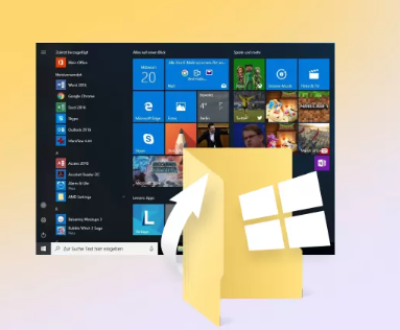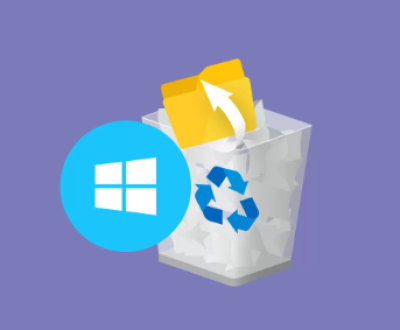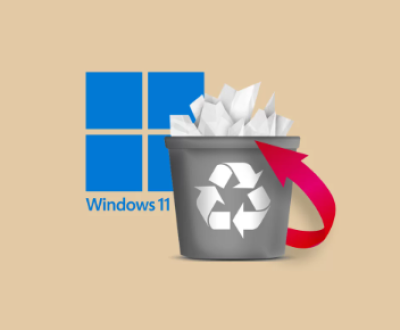Losing important files from your computer can be an unsettling experience, especially if they seem to be gone without a trace. However, the Recycle Bin on Windows systems often serves as a first line of defense against accidental deletions. But what happens when you delete files from the Recycle Bin itself? Fortunately, file recovery software offers powerful solutions to recover even permanently deleted files.
The Recycle Bin in Windows acts as a temporary storage space for files that have been deleted from local storage devices. When you press “Delete” or drag a file to the Recycle Bin, it is not removed from the hard drive immediately. Instead, it is stored there until the bin is emptied, giving you a chance to restore it if needed.

Despite this, the data remains physically on the disk until it is overwritten by new files. That’s where file recovery software comes in. These tools can scan the drive, detect remnants of deleted files, and restore them.
How Recycle Bin File Recovery Software Works
Recycle Bin file recovery software operates by scanning your drive for data that has not yet been overwritten. When a file is deleted and removed from the Recycle Bin, its entry in the file system is erased, but the actual data remains on the storage device. Recovery tools analyze the disk structure, file headers, and allocation tables to locate and rebuild lost files.
Most recovery tools offer features such as:
Quick Scan: Locates recently deleted files.
Deep Scan: Searches for file signatures and reconstructs files from raw data.
File Preview: Allows you to view recoverable files before restoring.
Selective Recovery: Enables you to choose specific files or folders to recover.
These capabilities make recovery software a reliable solution for retrieving data lost from the Recycle Bin.
Top Free Recycle Bin File Recovery Software
There are several free tools available that effectively recover files deleted from the Recycle Bin. Here are some popular options:
1. Panda Assistant
Panda Assistant is a versatile and user-friendly file recovery solution designed to help users retrieve files deleted from the Recycle Bin, even after it has been emptied. Whether due to accidental deletion, system cleanup, or software error, Panda Assistant provides a reliable method for recovering lost data with minimal effort.
When you delete a file and then empty the Recycle Bin, the file isn’t immediately removed from your hard drive it simply becomes inaccessible to the operating system. The space it once occupied is marked as available, but the data remains until it is overwritten. Panda Assistant leverages advanced scanning algorithms to locate and recover these residual data fragments before they’re lost permanently.
2. Disk Drill
Developer: CleverFiles
Key Features: Supports multiple file systems, recovery vault
Pros: Intuitive interface, fast scans
Cons: Recovery limited in the free version
3. PhotoRec
Developer: CGSecurity
Key Features: Open-source, wide file format support
Pros: Powerful recovery, supports multiple platforms
Cons: Text-based interface can be challenging for beginners
4. EaseUS Data Recovery Wizard Free
Developer: EaseUS
Key Features: Quick and deep scan, preview option
Pros: High recovery rate, clean interface
Cons: Recovery limit of 2GB in free version
5. MiniTool Power Data Recovery Free
Developer: MiniTool
Key Features: Partition recovery, file filtering
Pros: Useful features, beginner-friendly
Cons: Recovery size limit in free version
These tools are ideal for users seeking to recover files without spending money. However, for more advanced needs, paid versions may offer better performance and higher success rates.
Best Paid Recycle Bin File Recovery Software
Paid recovery software often provides enhanced functionality, better support, and higher recovery success. Here are some top-rated options:
1. Stellar Data Recovery
Features: Recover files from corrupted drives, supports 300+ file types
Price: Starts around $59.99
Pros: Excellent recovery capabilities, professional support
Cons: Expensive for occasional use
2. Wondershare Recoverit
Features: High recovery rate, video repair, bootable media
Price: From $69.99 per year
Pros: Supports a wide range of scenarios, easy to use
Cons: Pricey compared to competitors
3. R-Studio
Features: Advanced recovery options, RAID support
Price: Around $49.99
Pros: Ideal for professionals, deep recovery tools
Cons: Not suitable for beginners
4. Data Rescue by Prosoft Engineering
Features: Duplicate file finder, secure erase, bootable recovery
Price: From $99
Pros: Great for Mac users, robust performance
Cons: High price
5. iBeesoft Data Recovery
Features: File filtering, recovery by file type, simple UI
Price: Starts at $45.95
Pros: Clean design, effective for small businesses
Cons: Limited features in basic version
For users who frequently handle critical data or manage systems, investing in a paid solution may be worthwhile.
Step-by-Step Guide: How to Recover Files Deleted from the Recycle Bin
Stop Using the Affected Drive
Minimize the chances of data being overwritten by avoiding new file downloads or installations on the drive.
Download and Install a Recovery Tool
Choose a trusted software tool based on your budget and technical expertise. Install it on a different drive if possible.
Launch the Software and Select the Drive
Open the application and choose the location from which files were deleted—typically the main system partition (C: drive).
Choose Scan Mode
Start with a Quick Scan to find recently deleted files. If results are unsatisfactory, run a Deep Scan for a thorough search.
Preview and Select Files
Review the list of recoverable files. Use the preview feature to confirm file integrity before selecting.
Recover Files to a Safe Location
Save recovered files to a different drive or partition to avoid overwriting remaining deleted data.
Backup Recovered Data
Once your files are restored, back them up to cloud storage or an external drive to prevent future loss.
Tips for Successful Recovery
Act Quickly: The sooner you attempt recovery, the better the chances of success.
Avoid Writing to the Same Drive: Writing new data can overwrite deleted files.
Use Reliable Software: Choose reputable tools with proven success rates.
Create a Disk Image: Advanced users can create a disk image for safer recovery attempts.
Enable File History or Backup: Prevent data loss by regularly backing up your files.
Common Causes of Recycle Bin File Loss
Accidental Deletion: Users may empty the Recycle Bin without realizing important files were inside.
System Cleanup Tools: Software like CCleaner may remove deleted files permanently.
Disk Formatting: Formatting can erase the file system and all contained files.
Malware or Virus Attacks: Malicious programs may delete or corrupt data.
Hard Drive Failure: Physical damage or logical errors can make files inaccessible.
Understanding the root cause helps in choosing the right recovery approach.
When to Seek Professional Help
Sometimes DIY recovery is not sufficient, especially in cases involving:
Physically Damaged Drives
Heavily Corrupted File Systems
RAID Arrays or Encrypted Disks
In these cases, data recovery professionals can use specialized tools in cleanroom environments to retrieve lost files safely.
Recycle Bin file recovery software can be a lifesaver when you’ve lost important files due to accidental deletion or system errors. With a variety of free and paid tools available, users can find solutions that suit their needs and skill levels. Acting quickly, choosing the right software, and following best practices can significantly increase the chances of a successful recovery. Whether you’re a casual user or IT professional, understanding how these tools work and when to use them is essential in today’s digital world.
About us and this blog
Panda Assistant is built on the latest data recovery algorithms, ensuring that no file is too damaged, too lost, or too corrupted to be recovered.
Request a free quote
We believe that data recovery shouldn’t be a daunting task. That’s why we’ve designed Panda Assistant to be as easy to use as it is powerful. With a few clicks, you can initiate a scan, preview recoverable files, and restore your data all within a matter of minutes.

 Try lt Free
Try lt Free Recovery success rate of up to
Recovery success rate of up to









